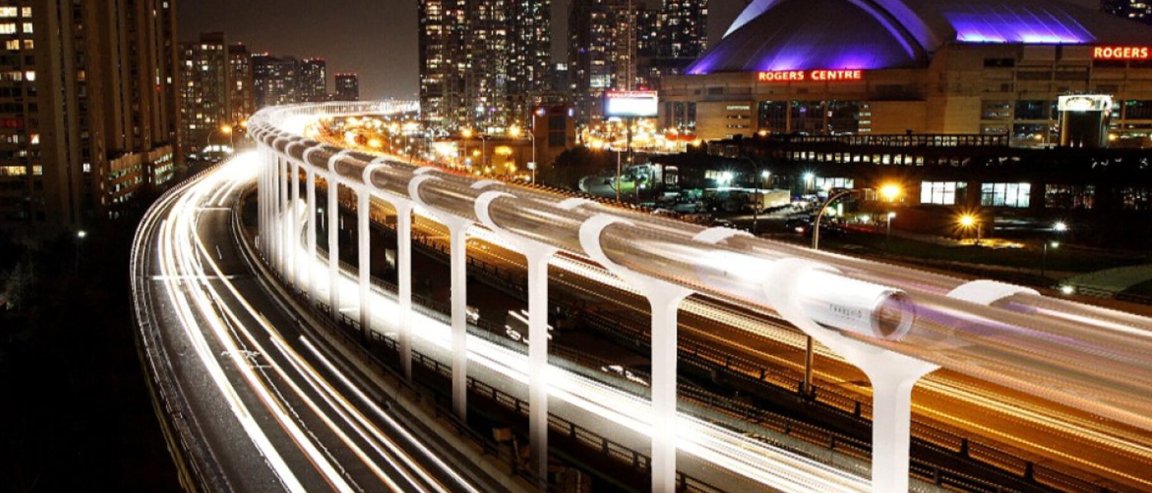
Where rail and aerospace meet
Since Elon Musk first proposed the idea of a Hyperloop in 2013, several attempts have been made by various developers to make it a reality. One Canadian company believes that the Hyperloop is no longer a moonshot, and they want a chance to convince the rest of the world that they’re right.
Sebastian Gendron, CEO and founder of Toronto-based startup TransPod, believes that most of the technology needed to make this revolutionary idea real is already available. “Some have been developed for the aerospace industry, some for the rail industry. So it’s really a matter of putting everything together and [building] it and [getting] it approved by agencies like Transport Canada and use it,” says Gendron in an interview with Day 6 host Brent Bambury.
TransPod plans to build a Hyperloop traveling between Toronto and Montreal, covering the 500-km (311-mile) distance in just 30 minutes. That means the Canadian Hyperloop is expected to move at 1,000 km/h (621 mph).

Zooming past difficulties
The Hyperloop is seen as transportation for the future, not just because it looks like it’s straight from sci-fi, but because of its energy efficiency potential. According to Gendron, 10,000 trucks transport cargo between Montreal and Toronto every day, sometimes taking up to a full day to make a one-way trip. He claims TransPod could make that same trip in just 60 minutes, greatly reducing greenhouse gas emissions along that route.
Multiply that by the vast number of busy land transport routes worldwide, and you can start to see how the advent of Hyperloops could have a huge positive impact on the environment.
Cargo is just the first step, though, as the goal is to eventually transport people quickly and safely, and Gendron is aware that the effect of fast transport on the human body should be carefully reviewed. That’s nothing that couldn’t be taken care of with a bit more research and funding, though, which is why Gendron presented TransPod at InnoTrans, the world’s largest transportation trade show, last month.
TransPod looks to have the technology working, at least for cargo transport, no later than 2025, so now they just need to get financial backers and convince the industry (and Canada) that their Hyperloop is a great and feasible idea.